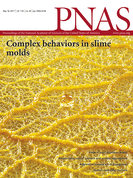 This week, the New England Journal of Medicine issued a type of editor’s note we’ve never seen before, on a highly influential letter published nearly 40 years ago.
This week, the New England Journal of Medicine issued a type of editor’s note we’ve never seen before, on a highly influential letter published nearly 40 years ago.
Above the one-paragraph letter, which reports data suggesting pain medications are not likely to cause addiction, the journal has added a note warning readers that the letter has been “heavily and uncritically cited” by sources using it to suggest opioids are not addictive.
In essence, the journal isn’t commenting on the merits of the letter — the problem is how it’s been used by others.
The same issue of the journal includes a letter by researchers based in Canada who analyzed how the 1980 letter had been cited, noting:
Continue reading NEJM issues unusual warning for readers about 1980 letter on opioid addiction

